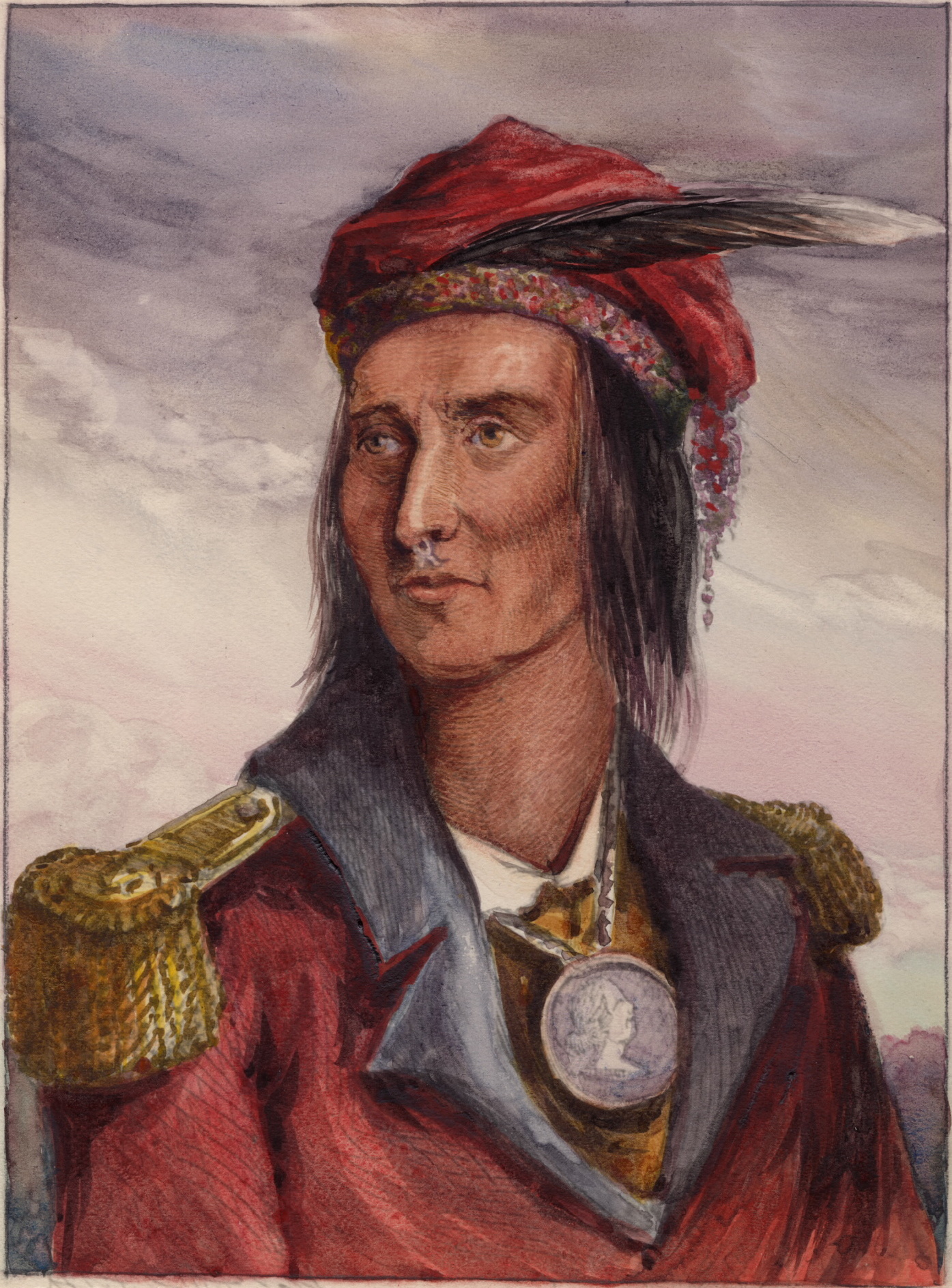Tecumseh Frasi e Citazioni
Tecumseh: Frasi in inglese
Disputed
Contesto: So live your life that the fear of death can never enter your heart. Trouble no one about their religion; respect others in their view, and demand that they respect yours. Love your life, perfect your life, beautify all things in your life. Seek to make your life long and its purpose in the service of your people. Prepare a noble death song for the day when you go over the great divide. Always give a word or a sign of salute when meeting or passing a friend, even a stranger, when in a lonely place. Show respect to all people and grovel to none. When you arise in the morning give thanks for the food and for the joy of living. If you see no reason for giving thanks, the fault lies only in yourself. Abuse no one and no thing, for abuse turns the wise ones to fools and robs the spirit of its vision. When it comes your time to die, be not like those whose hearts are filled with the fear of death, so that when their time comes they weep and pray for a little more time to live their lives over again in a different way. Sing your death song and die like a hero going home.
As quoted in A Sourcebook for Earth's Community of Religions (1995) by Joel Diederik Beversluis; but also ascribed to some of the Wabasha chiefs, Sitting Bull, Crazy Horse and Wovoka, according to Ernest Thompson Seton, The Gospel of the Red Man: An Indian Bible, San Diego, The Book Tree, 2006, p. 60
As quoted in A Sourcebook for Earth's Community of Religions (1995) by Joel Diederik Beversluis; but also ascribed to some of the Wabasha chiefs, Sitting Bull, Crazy Horse and Wovoka, according to Ernest Thompson Seton, The Gospel of the Red Man: An Indian Bible, San Diego, The Book Tree, 2006, p. 60
Disputed
Contesto: So live your life that the fear of death can never enter your heart. Trouble no one about their religion; respect others in their view, and demand that they respect yours. Love your life, perfect your life, beautify all things in your life. Seek to make your life long and its purpose in the service of your people. Prepare a noble death song for the day when you go over the great divide. Always give a word or a sign of salute when meeting or passing a friend, even a stranger, when in a lonely place. Show respect to all people and grovel to none. When you arise in the morning give thanks for the food and for the joy of living. If you see no reason for giving thanks, the fault lies only in yourself. Abuse no one and no thing, for abuse turns the wise ones to fools and robs the spirit of its vision. When it comes your time to die, be not like those whose hearts are filled with the fear of death, so that when their time comes they weep and pray for a little more time to live their lives over again in a different way. Sing your death song and die like a hero going home.
“When the legends die, the dreams end; there is no more greatness.”
Quoted as a statement of Tecumseh in Inspire! : What Great Leaders Do (2004) by Lance H. K. Secretan, p. 67; but also often quoted as an anonymous Shawnee proverb, as in The Soul Would Have No Rainbow If The Eyes Had No Tears (1994) by Guy A. Zona, p. 45
Disputed
Speech to the Creek people, quoted in Great Speeches by Native Americans by Robert Blaisdel. This quote appeared in J. F H. Claiborne, Life and Times of Gen. Sam Dale, the Mississippi Partisan (Harper, New York, 1860). However, historian John Sugden writes, "Claiborne's description of Tecumseh at Tuckabatchie in the alleged autobiography of the Fontiersman, Samuel Dale, however, is fraudulent. … Although they adopt the style of the first person, as in conventional autobiography, the passages dealing with Tecumseh were largely based upon published sources, including McKenney, Pickett and Drake's Life of Tecumseh. The story is cast in the exaggerated and sensational language of the dime novelist, with embellishments more likely supplied by Claiborne than Dale, and the speech put into Tecumseh's mouth is not only unhistorical (it has the British in Detroit!) but similar to ones the author concocted for other Indians in different circumstances." Sugden also finds it "unreliable" and "bogus." Sugden, John. "Early Pan-Indianism; Tecumseh’s Tour of the Indian Country, 1811-1812." American Indian Quarterly 10, no. 4 (1986): 273–304. doi:10.2307/1183838.
Misattributed, "Let the White Race Perish" (October 1811)
Quoted in Seeking a Nation Within a Nation, CBC Canada https://www.cbc.ca/history/EPCONTENTSE1EP5CH12LE.html
Quoted in Seeking a Nation Within a Nation, CBC Canada https://www.cbc.ca/history/EPCONTENTSE1EP5CH12LE.html
Quoted in Seeking a Nation Within a Nation, CBC Canada https://www.cbc.ca/history/EPCONTENTSE1EP5CH12LE.html
